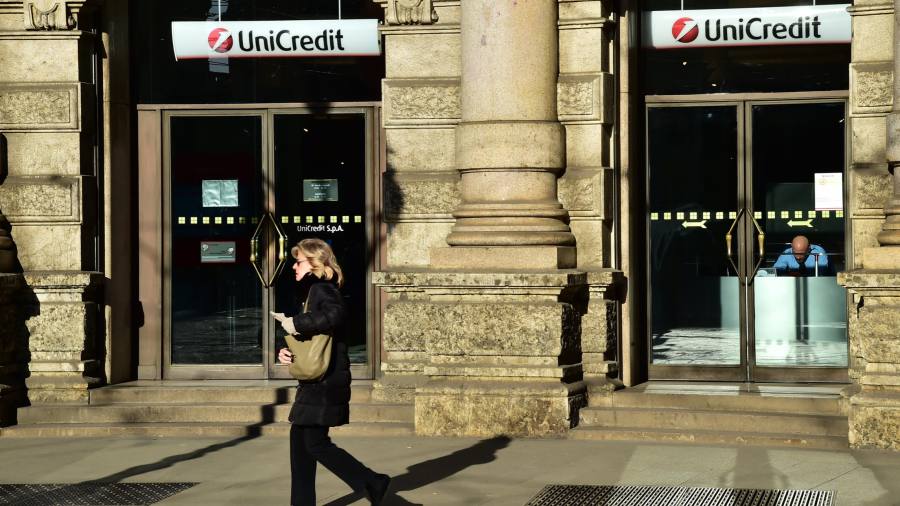
EU bank investors are scrutinising third-quarter earnings with two questions in mind. First, how much money will lenders be able — or allowed — to make as interest rates rise? And second, will this be more or less than they will lose from deteriorating loans as the gas-crunched European economy heads south?
In terms of macro forces, a recession in Europe seems all but inevitable. In Germany and Italy, gas consumption by industry — a key indicator — was down around 20 per cent in September, says think-tank Bruegel.
So far, neither Deutsche Bank nor UniCredit, who both reported third-quarter results on Wednesday, are seeing any real signs of distress. That points to the relative strength of their loan books — with a limited exposure to riskier segments such as consumer finance — but a lag is to be expected.
The lag-immune third quarter was pretty good. Banks benefited from higher net interest income, which at Deutsche Bank’s formerly troubled commercial unit rose 32 per cent. UniCredit’s was up 5 per cent despite a one-off hit.
The trend is set to continue as the interest rates rise. In 2023, net interest income could add between 1.1 and 2.5 percentage points to banks’ returns on tangible equity, according to analysis from Mediobanca’s Andrea Filtri.
The question is whether the benefit from net interest income will outweigh the cost of non-performing loans. If one takes the financial crisis of 2009 as a benchmark, banks absorbed provisions equivalent to 1.4 per cent of their loan books. On Mediobanca estimates, that would wipe out the benefit of higher interest rates — and more.
To be sure, that is a doomsday scenario. Estimates for European GDP next year are still marginally positive. European banks have cleaned up their loan books, with gross non-performing exposure below 2 per cent. Households in Italy and Germany are less leveraged than those in the UK, which should give UniCredit and Deutsche some comfort. That said, the scale of the potential challenge is daunting.